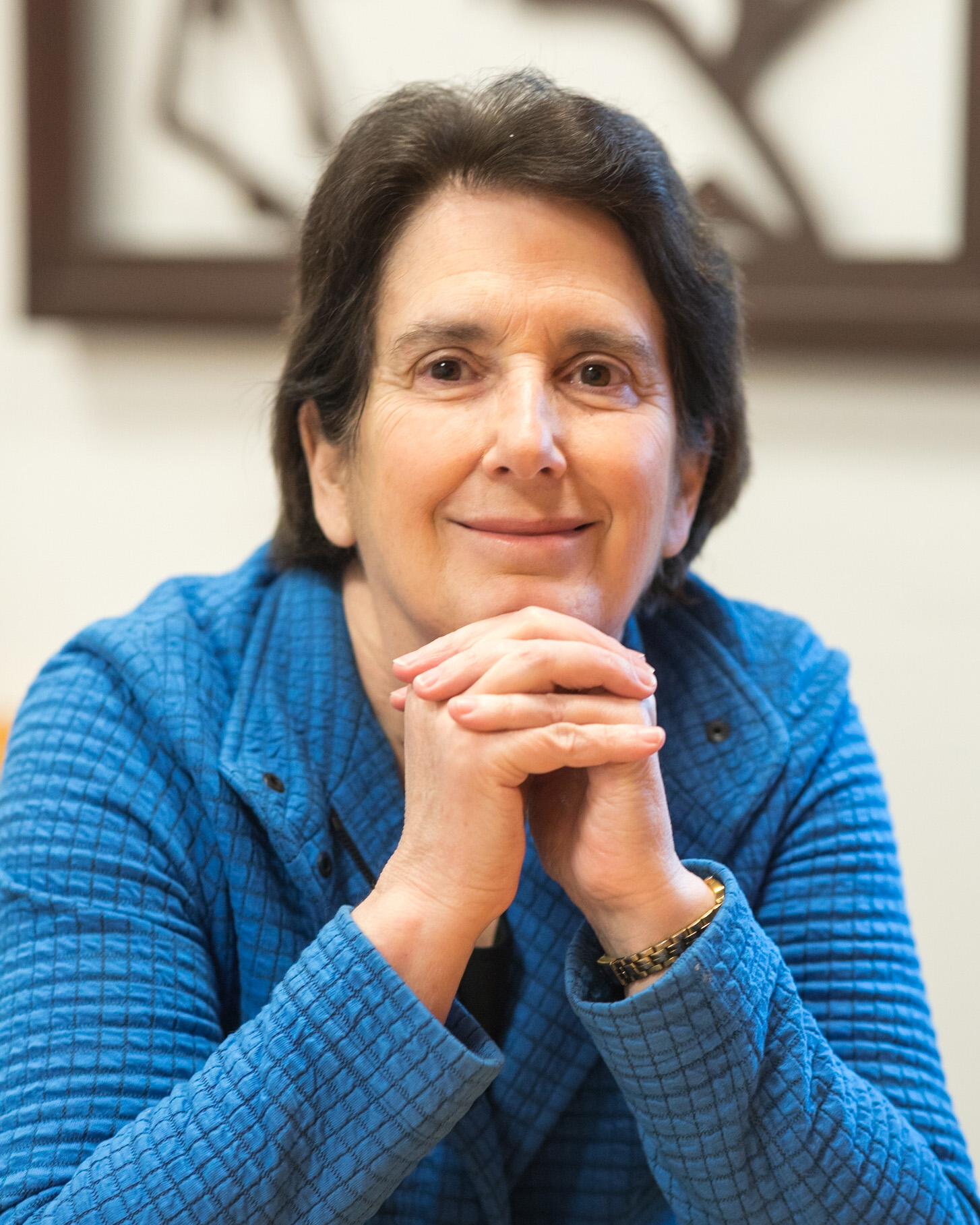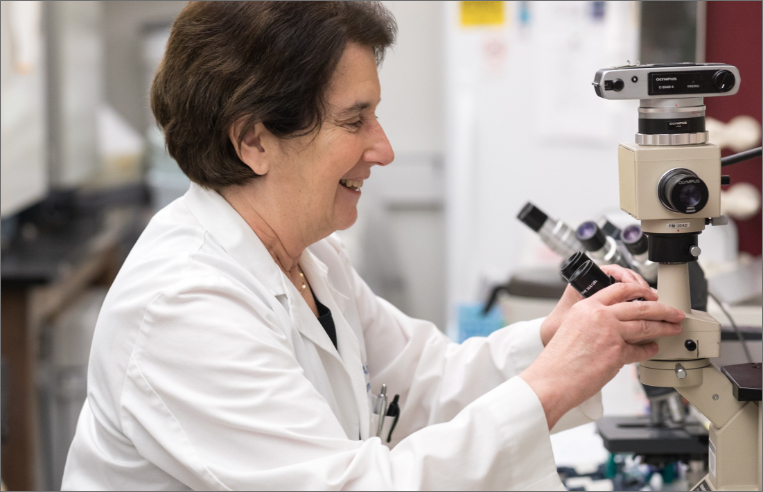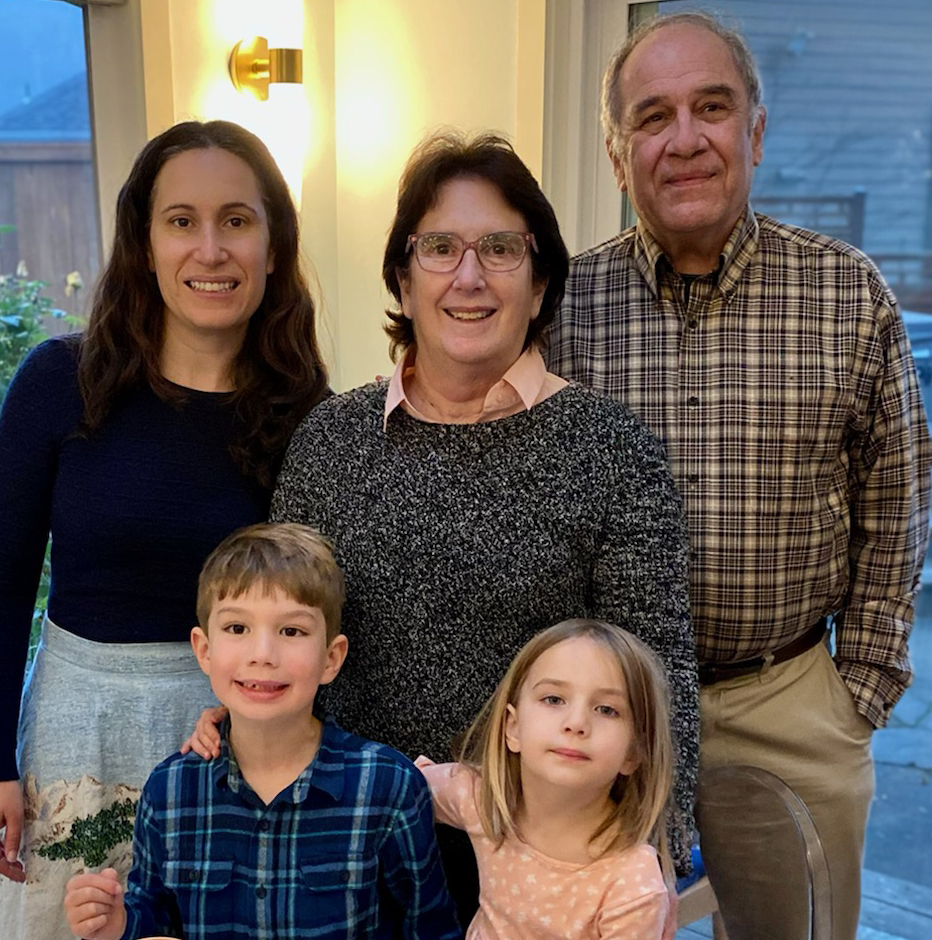
Faculty Spotlight: Jan Abkowitz
Dr. Janis Abkowitz is the Clement A Finch Professor of Medicine, head of the Division of Hematology, and adjunct professor of Genome sciences.
A native of Lexington, Massachusetts, her interest in biology started at a young age by observing the habits of frogs, toads, snakes, and turtles that lived in her neighborhood swamp.
“I decided I wanted to become a doctor because it combined biology and scientific logic with my evolving interest in anthropology and social sciences,” she said.
Her work was further influenced by a college mentor, Dr. Maurice Pechet. He was a prominent basic scientist who initially refused to have a female mentee but became a wonderful advisor, she said, and his excitement for biochemistry and concise thinking was infectious.
She received her medical degree from Harvard University, completed her residency at Boston's Beth Israel Hospital, and her hematology-oncology fellowship at the University of Washington.
She is an elected member of the American Society of Clinical Investigation, American Association of Physicians and the National Academy of Medicine and has held many national leadership roles, including president of the American Society of Hematology. She has also served as a councilor for the National Institute of Diabetes, Digestive and Kidney Diseases and the National Heart, Lung, and Blood Institute and co-led national hematology research and workforce strategic planning initiatives.
Mentoring
Abkowitz is especially committed to mentorship, both locally and nationally.
She co-led the European Hematology Association and American Society of Hematology’s translational research in hematology training program for select early faculty from Europe and the U.S. in 2000-2022, as an example. Also, she leads the Hematology Division’s NIH T32 program for postdoctoral fellow training.
Of the 14 graduate students and postdoctoral fellows who completed training in her laboratory, 11 are university faculty and 5 of her 8 MD or MD PhD postdoctoral trainees are K08 recipients, and another received KL2 support.
She says she most enjoys helping faculty and fellows thrive.
Research interests
Her current research focuses on understanding the cellular and molecular mechanisms that permit the quick and accurate differentiation of an erythroid progenitor into anucleate mature red cells where 95% of cell content is hemoglobin.
 Discerning how maturing cells coordinate their production of heme (a toxic chemical) vs. globin (a protein) to assure “effective” erythropoiesis and how this goes awry to result in anemia is a long-standing interest of her lab.
Discerning how maturing cells coordinate their production of heme (a toxic chemical) vs. globin (a protein) to assure “effective” erythropoiesis and how this goes awry to result in anemia is a long-standing interest of her lab.
Anemia from ineffective erythropoiesis is the major morbidity in inherited disorders such as Diamond Blackfan anemia (DBA) and acquired disorders such as myelodysplastic syndrome (MDS), and she has shown that this results from excessive heme leading to lipid peroxidation, ROS, and apoptosis and ferroptosis.
Her lab studies marrow cells from patients and healthy volunteers, as well as genetically manipulated CD34+ stem/progenitor cells, using single cell RNAseq, scCITE seq, pseudotime algorithms, in vitro culture, and other methods. She also studies erythropoiesis in murine models.
“I am especially excited about the therapeutic potential of a small molecule competitive inhibitor of glycine import. This slows erythroid cell heme synthesis so it better balances globin, appears very efficacious in our preclinical studies, and will be tested in a clinical trial in DBA patients shortly.”
Abkowitz's other research interest is understanding hematopoietic stem cell kinetics, in part by the mathematical modeling of cell fate-decisions using stochastic methods. This work allowed insights into hematopoietic stem cell differentiation during normal blood cell development, the pathophysiology of aplastic anemia, and the clonal evolution and progression blood disorders.
Her laboratory research has been continuously funded by the NIH for over 30 years.
Clinical work
Abkowitz has been caring for people with a wide spectrum of blood cancers and other blood-related problems since 1983.
Her specialty is working with people who have cytopenias, or low blood counts, and bone marrow failure or dysregulation, which can cause too few or too many blood cells.
These diseases include MDS (bone marrow problems leading to low levels of blood cells in your bloodstream) and myeloproliferative diseases (bone marrow problems leading to high levels of blood cells in your bloodstream), particularly polycythemia vera and essential thrombocytosis.
“I enjoy getting to know my patients and their families, solving difficult diagnostic problems and designing personalized treatment strategies.”
Through her leadership – at the University of Washington, the American Society of Hematology, and the National Institutes of Health – she has worked to support basic and translational research impacting patient care.
"I lead a double life," she says. “Many who know me as a scientist, do not know I see patients and many who know me clinically, attending on the Hematology consult or the Leukemia services, do not know I have a lab. My passion for combining science with clinical medicine drives the work that I do every day — as a doctor, researcher and educator.”
Trailblazer
Abkowitz has been a trailblazer for women in medicine and science since high school, where she was the only female on the math team and the league high scorer. She also placed fifth in the nation in the Mathematics Association of American exam; the highest score a female had earned in the exam’s roughly 20-year history. She says she was embarrassed by the hype around this and didn’t understand why gender was important.
"The traveling fellowship was the most defining experience of my career"
She was selected for the Frederick Sheldon Traveling Fellowship in 1972, which required she spend at least nine months outside of the U.S. and no more than three months in one place.
She worked on medical projects in the Congo, India, Kashmir, Thailand and Papua New Guinea and says the fellowship became the most defining experience of her career.
Being nominated and selected for this award was a surprise since it – like most awards at Harvard – had previously been restricted to men.
In 2006 she became the first female division head in the Department of Medicine.
Personal life

In her spare time, she enjoys gardening, photography, and spending time with her family, including her grandchildren who are 5 and 7. She also likes to hike, backpack, and travel, especially to developing counties.
She is looking forward to a three week trip with her husband, Rich Miller (former VA infectious diseases division head, now retired) to Peru in September.
“My husband and I were last there as students in 1977, traveled by bus/hitchhiking, but now will have car and driver and the opportunity to see less accessible sites as well as return to favorite locales,” she says.
